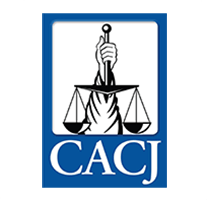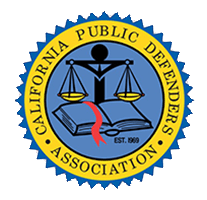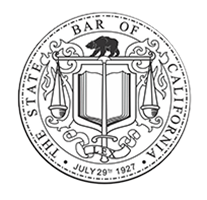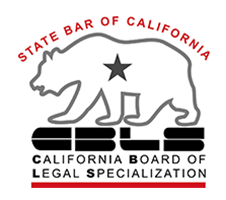Fairfield Federal Crimes Lawyer
A Top Federal Defense Attorney with 25 Years of Experience to Fight for Your Rights
Attorney Tim A. Pori
is one of the few attorneys in the Solano County Area to handle federal crimes defense – and do it well. Equipped with 25 years of experience and certification as a Criminal Law Specialist, Attorney Pori has the professional skill and resources to champion your rights in the face of federal accusations, from RICO to wire fraud to firearms charges. Our firm has been mentioned in the press many times for our tough trials and not guilty verdicts; we can put up a proper fight to protect your constitutional rights in the face of the federal justice system.
RICO Act
The federal Racketeer Influenced and Corrupt Organizations (RICO) law makes it a federal crime to participate in or make money from racketeering (organized, illegal activity), often involving white collar crimes, fraud, or political corruption.
More specifically, it is a federal crime under RICO to do any of the following:
conduct the affairs of a business or organization through racketeering activity;
acquire or maintain an interest in any enterprise through racketeering activity;
use money earned from racketeering activity or from the collection of an unlawful debt to acquire, establish, or operate any enterprise (business or organization) that affects interstate commerce;
conspire to do any of the aforementioned
To prosecute a defendant under RICO, the federal prosecutors must prove all the following elements:
- A pattern of racketeering – multiple instances of criminal racketeering (2 or more within the past 10 years)
- A criminal enterprise – a distinct legal entity (corporation, partnership) or a group of individuals associated in fact (criminal gang) that is an ongoing organization that functions as a unit, has a common purpose, and exists separate and apart from the members’ criminal activity
- An effect on interstate commerce – a large economic effect or moving substantial amounts of money, goods, or people from one state to another
Each separate count of racketeering is punishable by up to 20 years in prison. If the underlying crime is punishable by life in prison, the racketeering act may also be punishable by life in prison. The court may also order a fine of up to twice the defendant’s illegal profits, as well as seize any assets earned or maintained through racketeering (e.g., cars, equipment, property).
In addition to criminal prosecutions, citizens affected by a racketeering activity may take civil action for damages. Note that the plaintiff must prove that the RICO violation caused them injury in the form of economic harm. If successful, the court may order the defendant to:
- pay triple damages to the plaintiff;
- pay the plaintiff's attorneys fees; and
- stop engaging in certain activities or businesses.
Federal Drug Crimes
The federal Controlled Substances Act categorizes prohibited drugs into 5 different schedules based on their potential for abuse, accepted medical applications, and dangerousness for addiction. Some examples of drugs in their respective schedule are:
- Schedule I – LSD, marijuana, heroin
- Schedule II – oxycodone, fentanyl, morphine, opium, codeine
- Schedule III – ketamine, anabolic steroids, certain amounts of codeine
- Schedule IV – Xanax, Valium, Ambien
- Schedule V – atropine, Lomotil, Lyrica
Federal drug crimes are charged as drug conspiracies. To prove a drug conspiracy charge, the prosecution must show the following:
- there was an agreement between 2 or more people to violate a federal drug law; and
- each alleged conspirator knew of the unlawful agreement and joined in it.
According to 21 U.S.C. § 841 and 21 U.S.C. § 952, there are 4 types of drug crimes addressed by federal law:
- Manufacturing a controlled substance – production, processing, preparation, or extraction of a controlled substance (e.g., growing a marijuana plant, pressing pills)
- Distributing a controlled substance – delivering a drug to someone, even if there is no money involved
- Possessing a controlled substance with the intent to distribute it – can be suggested by prior drug sales, possession of equipment such as scales and baggies, and even the amount of drugs in someone’s possession as evidence of an intent to distribute
- Importing a controlled substance – importation of illegal drugs into the US, usually by deceiving U.S. Customs or Border Patrol
The penalties for a federal drug crime will depend on the type of drug and quantity involved. For example, marijuana conspiracies are punishable by up to 20-40 years in prison, depending on the amount. Cocaine, “crack” cocaine, and heroin crimes are also punishable by 20-year maximums or 40-year maximums based on specified amounts. Contact our firm for more specific information on what your case in particular may warrant.

Firearms Cases
While the Second Amendment guarantees every citizen the right to bear arms, there are also other federal laws governing firearms rights and when these rights may be relinquished. In particular, 18 U.S.C. § 922 prohibits the possession of a firearm by:
- convicted felons;
- drug users or addicts;
- non-US citizens (aliens, illegal aliens);
- individuals subject to a domestic violence restraining order;
- those convicted of misdemeanor domestic violence;
- minors under the age of 18;
- dishonorably discharged veterans.
It is also illegal to import, produce, conduct transactions, or sell or distribute firearms across state lines without a proper license.
Note that federal law highlights certain weapons prohibited for possession unless otherwise authorized, including destructive devices (bombs, grenades, rockets, missiles, mines), machine guns, firearm silencers, short-barreled shotguns and rifles, semi-automatic assault weapons, and firearms where the serial number has been changed or removed.
Most federal firearm crimes are charged as a felony punishable by 5 or 10 years in federal prison, as well as a fine of up to $250,000 ($500, 000 for an organization). A misdemeanor conviction will result in up to 1 year in prison and a fine of up to $100,000 ($200,000 for an organization).
Note that federal law sets mandatory minimum sentences (served in addition to the underlying sentence) for firearms use that allegedly furthered federal violent or drug trafficking crimes:
- 5 years for carrying or possessing a firearm;
- 7 years for brandishing a firearm;
- 10 years if the firearm is discharged;
- 10 years for possession of a sawed-off rifle or shotgun or semiautomatic assault weapon;
- 15 years for possession of armor piercing ammunition;
- 40 years for possession of a machine gun, destructive device, or a silencer.
Wire Fraud
Wire fraud is another type of federal crime our firm handles. Wire fraud refers to fraud that is carried out via wire, radio, or television communication, including through e-mail and Internet use.
To prove an instance of wire fraud, the prosecutor must show the following elements:
- a scheme to commit fraud;
- use of wire, radio, or television communication to further that scheme; and
- specific intent to commit fraud.
A convicted individual can face up to 20 years in federal prison and a heavy fine. If the fraud involves a serious federal disaster or a financial institution (e.g., a national bank), the maximum sentence will increase to 30 years in prison.
To combat a wire fraud charge, you might show a lack of intent or mistake of fact. For instance, you could argue that your transmission of a fax containing false information was not intentional, as you believed the information to be true.
Facing a federal charge in Fairfield, CA? Contact the Law Office of Tim A. Pori online or at (707) 309-3480 to discuss your legal options in a free consultation.
Fairfield Federal Crimes Lawyer
A Top Federal Defense Attorney with 25 Years of Experience to Fight for Your Rights
Attorney Tim A. Pori
is one of the few attorneys in the Solano County Area to handle federal crimes defense – and do it well. Equipped with 25 years of experience and certification as a Criminal Law Specialist, Attorney Pori has the professional skill and resources to champion your rights in the face of federal accusations, from RICO to wire fraud to firearms charges. Our firm has been mentioned in the press many times for our tough trials and not guilty verdicts; we can put up a proper fight to protect your constitutional rights in the face of the federal justice system.
RICO Act
The federal Racketeer Influenced and Corrupt Organizations (RICO) law makes it a federal crime to participate in or make money from racketeering (organized, illegal activity), often involving white collar crimes, fraud, or political corruption.
More specifically, it is a federal crime under RICO to do any of the following:
To prosecute a defendant under RICO, the federal prosecutors must prove all the following elements:
- A pattern of racketeering – multiple instances of criminal racketeering (2 or more within the past 10 years)
- A criminal enterprise – a distinct legal entity (corporation, partnership) or a group of individuals associated in fact (criminal gang) that is an ongoing organization that functions as a unit, has a common purpose, and exists separate and apart from the members’ criminal activity
- An effect on interstate commerce – a large economic effect or moving substantial amounts of money, goods, or people from one state to another
Each separate count of racketeering is punishable by up to 20 years in prison. If the underlying crime is punishable by life in prison, the racketeering act may also be punishable by life in prison. The court may also order a fine of up to twice the defendant’s illegal profits, as well as seize any assets earned or maintained through racketeering (e.g., cars, equipment, property).
In addition to criminal prosecutions, citizens affected by a racketeering activity may take civil action for damages. Note that the plaintiff must prove that the RICO violation caused them injury in the form of economic harm. If successful, the court may order the defendant to:
- pay triple damages to the plaintiff;
- pay the plaintiff's attorneys fees; and
- stop engaging in certain activities or businesses.
Federal Drug Crimes
The federal Controlled Substances Act categorizes prohibited drugs into 5 different schedules based on their potential for abuse, accepted medical applications, and dangerousness for addiction. Some examples of drugs in their respective schedule are:
- Schedule I – LSD, marijuana, heroin
- Schedule II – oxycodone, fentanyl, morphine, opium, codeine
- Schedule III – ketamine, anabolic steroids, certain amounts of codeine
- Schedule IV – Xanax, Valium, Ambien
- Schedule V – atropine, Lomotil, Lyrica
Federal drug crimes are charged as drug conspiracies. To prove a drug conspiracy charge, the prosecution must show the following:
- there was an agreement between 2 or more people to violate a federal drug law; and
- each alleged conspirator knew of the unlawful agreement and joined in it.
According to 21 U.S.C. § 841 and 21 U.S.C. § 952, there are 4 types of drug crimes addressed by federal law:
- Manufacturing a controlled substance – production, processing, preparation, or extraction of a controlled substance (e.g., growing a marijuana plant, pressing pills)
- Distributing a controlled substance – delivering a drug to someone, even if there is no money involved
- Possessing a controlled substance with the intent to distribute it – can be suggested by prior drug sales, possession of equipment such as scales and baggies, and even the amount of drugs in someone’s possession as evidence of an intent to distribute
- Importing a controlled substance – importation of illegal drugs into the US, usually by deceiving U.S. Customs or Border Patrol
The penalties for a federal drug crime will depend on the type of drug and quantity involved. For example, marijuana conspiracies are punishable by up to 20-40 years in prison, depending on the amount. Cocaine, “crack” cocaine, and heroin crimes are also punishable by 20-year maximums or 40-year maximums based on specified amounts. Contact our firm for more specific information on what your case in particular may warrant.

Firearms Cases
While the Second Amendment guarantees every citizen the right to bear arms, there are also other federal laws governing firearms rights and when these rights may be relinquished. In particular, 18 U.S.C. § 922 prohibits the possession of a firearm by:
- convicted felons;
- drug users or addicts;
- non-US citizens (aliens, illegal aliens);
- individuals subject to a domestic violence restraining order;
- those convicted of misdemeanor domestic violence;
- minors under the age of 18;
- dishonorably discharged veterans.
It is also illegal to import, produce, conduct transactions, or sell or distribute firearms across state lines without a proper license.
Note that federal law highlights certain weapons prohibited for possession unless otherwise authorized, including destructive devices (bombs, grenades, rockets, missiles, mines), machine guns, firearm silencers, short-barreled shotguns and rifles, semi-automatic assault weapons, and firearms where the serial number has been changed or removed.
Most federal firearm crimes are charged as a felony punishable by 5 or 10 years in federal prison, as well as a fine of up to $250,000 ($500, 000 for an organization). A misdemeanor conviction will result in up to 1 year in prison and a fine of up to $100,000 ($200,000 for an organization).
Note that federal law sets mandatory minimum sentences (served in addition to the underlying sentence) for firearms use that allegedly furthered federal violent or drug trafficking crimes:
- 5 years for carrying or possessing a firearm;
- 7 years for brandishing a firearm;
- 10 years if the firearm is discharged;
- 10 years for possession of a sawed-off rifle or shotgun or semiautomatic assault weapon;
- 15 years for possession of armor piercing ammunition;
- 40 years for possession of a machine gun, destructive device, or a silencer.
Wire Fraud
Wire fraud is another type of federal crime our firm handles. Wire fraud refers to fraud that is carried out via wire, radio, or television communication, including through e-mail and Internet use.
To prove an instance of wire fraud, the prosecutor must show the following elements:
- a scheme to commit fraud;
- use of wire, radio, or television communication to further that scheme; and
- specific intent to commit fraud.
A convicted individual can face up to 20 years in federal prison and a heavy fine. If the fraud involves a serious federal disaster or a financial institution (e.g., a national bank), the maximum sentence will increase to 30 years in prison.
To combat a wire fraud charge, you might show a lack of intent or mistake of fact. For instance, you could argue that your transmission of a fax containing false information was not intentional, as you believed the information to be true.
Facing a federal charge in Fairfield, CA? Contact the Law Office of Tim A. Pori online or at (707) 309-3480 to discuss your legal options in a free consultation.
HOW WE WIN
Strong Defense Backed by Years of Experience
A Great Trial Lawyer that Loves a Good Fight
Well-Known & Respected by Judges & Peers
Tim is a Certified Criminal Law Specialist by the State Bar of CA
Over 25 Years of Legal Experience
HOW WE WIN
Strong Defense Backed by Years of Experience
A Great Trial Lawyer that Loves a Good Fight
Well-Known & Respected by Judges & Peers
Tim is a Certified Criminal Law Specialist by the State Bar of CA
Over 25 Years of Legal Experience
Request a Free Consultation
Contact Us
We will get back to you as soon as possible.
Please try again later.
A Great Trial Lawyer that Loves a Good Fight
Well-Known & Respected by Judges & Peers
Tim is a Certified Criminal Law Specialist by the State Bar of CA
Over 25 Years of Legal Experience
Request a Free Consultation
Contact Us
We will get back to you as soon as possible.
Please try again later.
The information on this website is for general information purposes only. Nothing on this site should be taken as legal advice for any individual case or situation. This information is not intended to create, and receipt or viewing does not constitute,
an attorney-client relationship.
© 2022 All Rights Reserved.
The information on this website is for general information purposes only. Nothing on this site should be taken as legal advice for any individual case or situation.
This information is not intended to create, and receipt or viewing does not constitute, an attorney-client relationship.
© 2024 All Rights Reserved.
The information on this website is for general information purposes only. Nothing on this site should be taken as legal advice
for any individual case or situation. This information is not
intended to create, and receipt or viewing does not constitute,
an attorney-client relationship.
© 2022 All Rights Reserved.
Website Created and Powered by © 2024 TechXpress | All Rights Reserved





